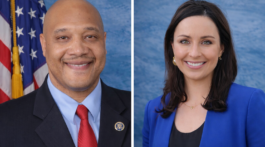By Abdul-Hakim Shabazz
Whitley County Consolidated Schools just taught us all how not to handle a crisis involving parental rights, student safety, and constitutional law.
Here’s the setup: a middle school student alleges a bus driver exposed his underwear and brandished a belt. The school failed to inform her mother. When the mother recorded a meeting with administrators to get answers—legally, under Indiana’s one-party consent wiretap law (Ind. Code § 35-33.5-1-5)—the district retaliated by banning her from campus.
Now the Goldwater Institute is preparing to sue under 42 U.S.C. § 1983, claiming First Amendment retaliation. And honestly, they’ve got a solid theory.
Let’s talk real solutions:
1. Rescind the ban—before you get sued
The ban is constitutionally suspect. Schools are government actors. When they restrict speech or punish expressive conduct like audio recording—especially regarding a matter of public concern—they invoke strict scrutiny. Unless they can show a compelling interest and narrow tailoring, it’s unconstitutional. Spoiler alert: they can’t.
2. Update recording policies
“No unauthorized recordings” may sound nice, but it’s facially overbroad. Indiana law allows any party to a conversation to record it. You can’t punish someone for exercising a statutory right—especially not when they’re exposing possible misconduct. That’s classic protected activity.
3. Draft a Parental Rights & Responsibilities Charter
Codify expectations on both sides. Spell out when parents have access, how discipline works, and how to resolve disputes without invoking lawyers or litigation. Proactive communication can prevent reactive overreach.
4. Establish mandatory notification rules
If a student reports misconduct by an employee, the parent must be notified in writing. This is as much a due process issue as it is common sense. If you fail to notify, you’re setting yourself up for negligence claims and Title IX scrutiny.
5. Designate a compliance and parental engagement liaison
Someone who knows both policy and the law should handle volatile situations before they escalate. Mediation is cheaper than litigation.
6. Train administrators on the First Amendment
Public school officials are state actors. Their power isn’t unlimited. Retaliating against constitutionally protected conduct—like exposing misconduct or criticizing officials—can trigger § 1983 liability, attorney’s fees under 42 U.S.C. § 1988, and even punitive damages if it’s egregious.
Bottom line: if a parent lawfully records a meeting to advocate for their child’s safety, don’t kick them off campus. Kick your legal department into gear and fix your policy.
Abdul-Hakim Shabazz is the editor and publisher of Indy Politics. He is also an attorney licensed in Indiana and Illinois.














